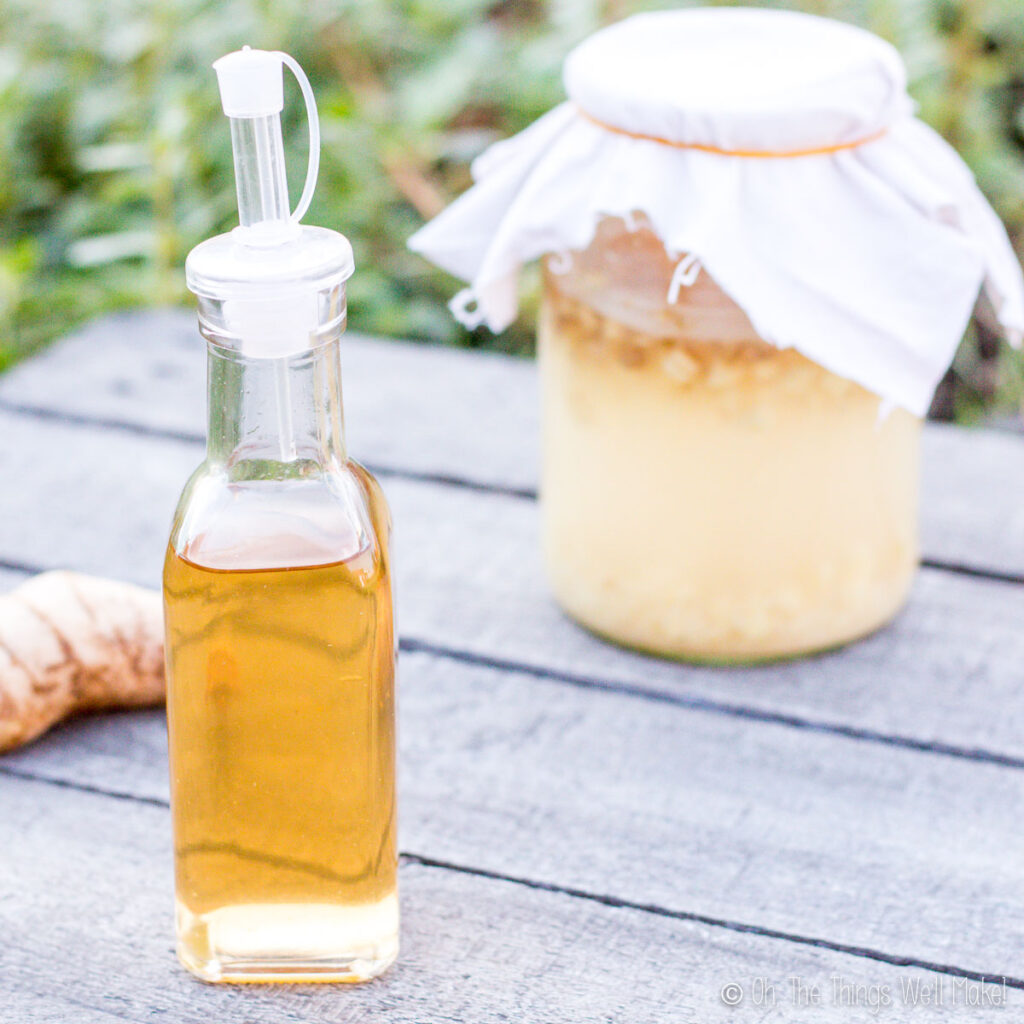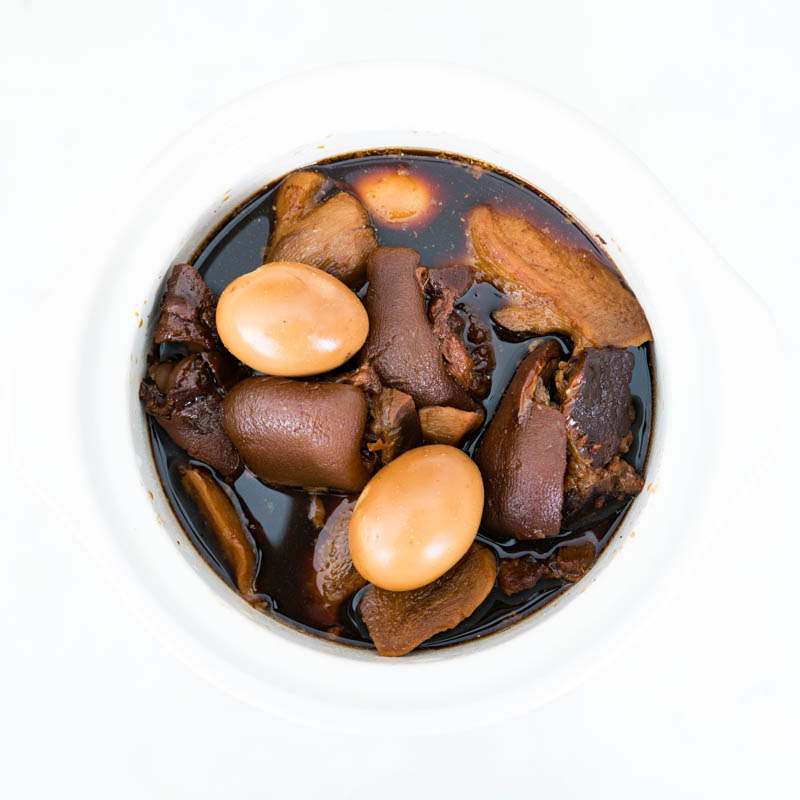Step into the realm of culinary alchemy, where the enigmatic flavors of Chinese ginger vinegar dance upon the palate. This ancient condiment, steeped in cultural heritage and medicinal wisdom, invites us on a journey of taste and well-being.
From the bustling markets of old to modern-day kitchens, Chinese ginger vinegar has left an enduring mark on gastronomy and traditional healing practices. Its versatility knows no bounds, tantalizing taste buds with its tangy sweetness and invigorating the body with its therapeutic properties.
Introduction to Chinese Ginger
Chinese ginger vinegar, a culinary staple in Chinese cuisine, is a versatile condiment with a rich history. Originating centuries ago, it has been traditionally used as a dipping sauce, marinade, and ingredient in various dishes. Its distinct flavor profile, characterized by the piquant heat of ginger and the acidity of vinegar, adds a vibrant dimension to Chinese cooking.
Cultural Significance and Traditional Uses
Chinese ginger vinegar holds cultural significance in Chinese society. It is often served as a dipping sauce for steamed or boiled dishes, such as fish, pork, and vegetables. Its tangy flavor complements the delicate taste of these dishes, enhancing their overall appeal.
Additionally, ginger vinegar is commonly used as a marinade for meats and poultry, infusing them with its unique blend of flavors. Its versatility extends to its use as an ingredient in various sauces, dressings, and even soups, adding a touch of complexity and zest to each culinary creation.
Ingredients and Equipment

Creating Chinese ginger vinegar requires a handful of essential ingredients and a few basic pieces of equipment. Understanding the roles of each ingredient and the purpose of the equipment will ensure a successful and flavorful outcome.
Ingredients
- Ginger: The star ingredient, providing the characteristic flavor and aroma. Fresh, young ginger with a firm texture and vibrant color is preferred.
- Rice Vinegar: A mild and slightly sweet vinegar that balances the pungency of ginger. White rice vinegar is commonly used.
- Sugar: Adds sweetness to counteract the acidity of the vinegar. Brown sugar or granulated sugar can be used.
- Salt: Enhances the flavors and acts as a preservative.
Equipment
- Glass Jar: A clean, airtight glass jar with a lid for storing the vinegar.
- Knife: A sharp knife for slicing the ginger.
- Measuring Cups and Spoons: For precise measurement of ingredients.
- Cheesecloth or a Fine-Mesh Sieve: For straining the vinegar to remove any impurities.
Step-by-Step Recipe
Making Chinese ginger vinegar is a simple process that requires minimal ingredients and equipment. Here are the detailed steps to guide you through the process:
Tips: – Use fresh, high-quality ginger for the best flavor. – Cut the ginger into thin slices for even cooking. – Store the vinegar in a cool, dark place for longer shelf life.
Ingredients
- 1 cup rice vinegar
- 1/2 cup sugar
- 1/4 cup water
- 1/4 cup thinly sliced ginger
Equipment
- Saucepan
- Wooden spoon
- Glass jar or bottle
Instructions
1. Combine ingredients
In a saucepan, combine the rice vinegar, sugar, and water. Bring to a boil over medium heat, stirring constantly to dissolve the sugar.
2. Add ginger
Once the sugar is dissolved, add the sliced ginger to the saucepan. Reduce heat to low and simmer for 15 minutes, or until the ginger is tender.
3. Remove from heat
Remove the saucepan from the heat and let cool slightly.
4. Strain vinegar
Strain the vinegar through a fine-mesh sieve into a glass jar or bottle. Discard the ginger slices.
5. Store
Seal the jar or bottle tightly and store it in a cool, dark place. The vinegar will keep for several months.
Tips
- For a sweeter vinegar, add more sugar to taste.
- For a spicier vinegar, add more ginger to taste.
- You can also add other spices to the vinegar, such as garlic, chili peppers, or star anise.
Storage and Uses
Chinese ginger vinegar should be stored in a cool, dark place to preserve its flavor and quality. It can be kept in a sealed glass jar or bottle for up to 6 months. If refrigerated, it can last for up to 1 year.
To prevent spoilage, it’s crucial to avoid cross-contamination by using clean utensils when handling the vinegar. Additionally, ensure the storage container is properly sealed to prevent air exposure, which can lead to oxidation and flavor degradation.
Culinary Uses
Chinese ginger vinegar is a versatile ingredient with a wide range of culinary applications. It adds a tangy and spicy flavor to various dishes, including:
- Stir-fries
- Noodles
- Dumplings
- Soups
- Marinades
- Dipping sauces
Medicinal Uses
Beyond its culinary uses, Chinese ginger vinegar also possesses medicinal properties. It is commonly used in traditional Chinese medicine to:
- Relieve nausea and vomiting
- Improve digestion
- Reduce inflammation
- Boost immunity
- Treat respiratory ailments
Health Benefits
Chinese ginger vinegar is a versatile condiment that not only enhances the flavor of dishes but also offers potential health benefits. Its unique blend of ginger, vinegar, and other ingredients provides a rich source of antioxidants, anti-inflammatory compounds, and digestive aids.
Antioxidant Properties
Ginger vinegar is a potent source of antioxidants, including gingerols and shogaols. These compounds help neutralize free radicals, unstable molecules that can damage cells and contribute to chronic diseases. Studies have shown that ginger vinegar can protect against oxidative stress and reduce the risk of certain types of cancer.
Anti-Inflammatory Properties
Ginger has been traditionally used for its anti-inflammatory properties. The gingerols in ginger vinegar inhibit the production of inflammatory cytokines, reducing pain and swelling. Research suggests that ginger vinegar may be effective in treating conditions such as osteoarthritis and rheumatoid arthritis.
Digestive Properties
Ginger vinegar aids digestion by stimulating the production of digestive enzymes and reducing gas and bloating. The vinegar’s acidity helps break down food and promote absorption of nutrients. Ginger vinegar is also a natural probiotic, containing beneficial bacteria that support gut health.
Last Point

As we delve into the intricacies of this culinary masterpiece, may this guide empower you to craft your own elixir of flavor and wellness. Let the aromatic essence of Chinese ginger vinegar enrich your culinary creations, awaken your taste buds, and nourish your body from within.
Frequently Asked Questions
What is the traditional use of Chinese ginger vinegar?
Traditionally, Chinese ginger vinegar has been used as a condiment, digestive aid, and medicinal tonic to alleviate nausea, improve circulation, and boost immunity.
How long can Chinese ginger vinegar be stored?
When stored in a cool, dark place, Chinese ginger vinegar can retain its flavor and potency for up to 6 months.
Can I use other types of vinegar in this recipe?
While rice vinegar is the traditional choice, you can experiment with other vinegars such as apple cider vinegar or white wine vinegar to create variations in flavor.
Is Chinese ginger vinegar suitable for vegetarians and vegans?
Yes, Chinese ginger vinegar is suitable for both vegetarians and vegans as it contains no animal products.
What are some creative ways to use Chinese ginger vinegar?
Beyond its culinary uses, Chinese ginger vinegar can be incorporated into salad dressings, marinades, sauces, and even cocktails for a unique flavor twist.
